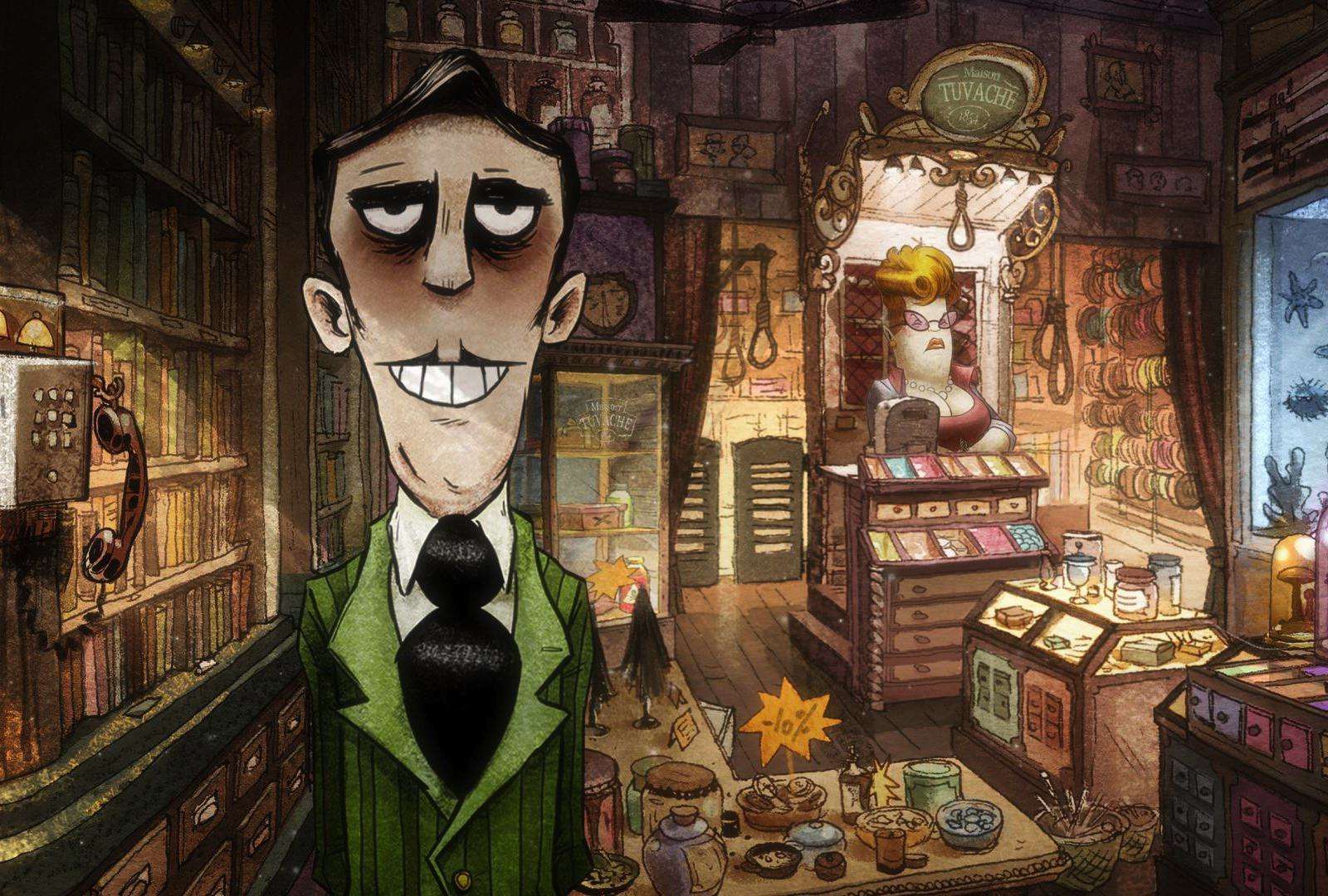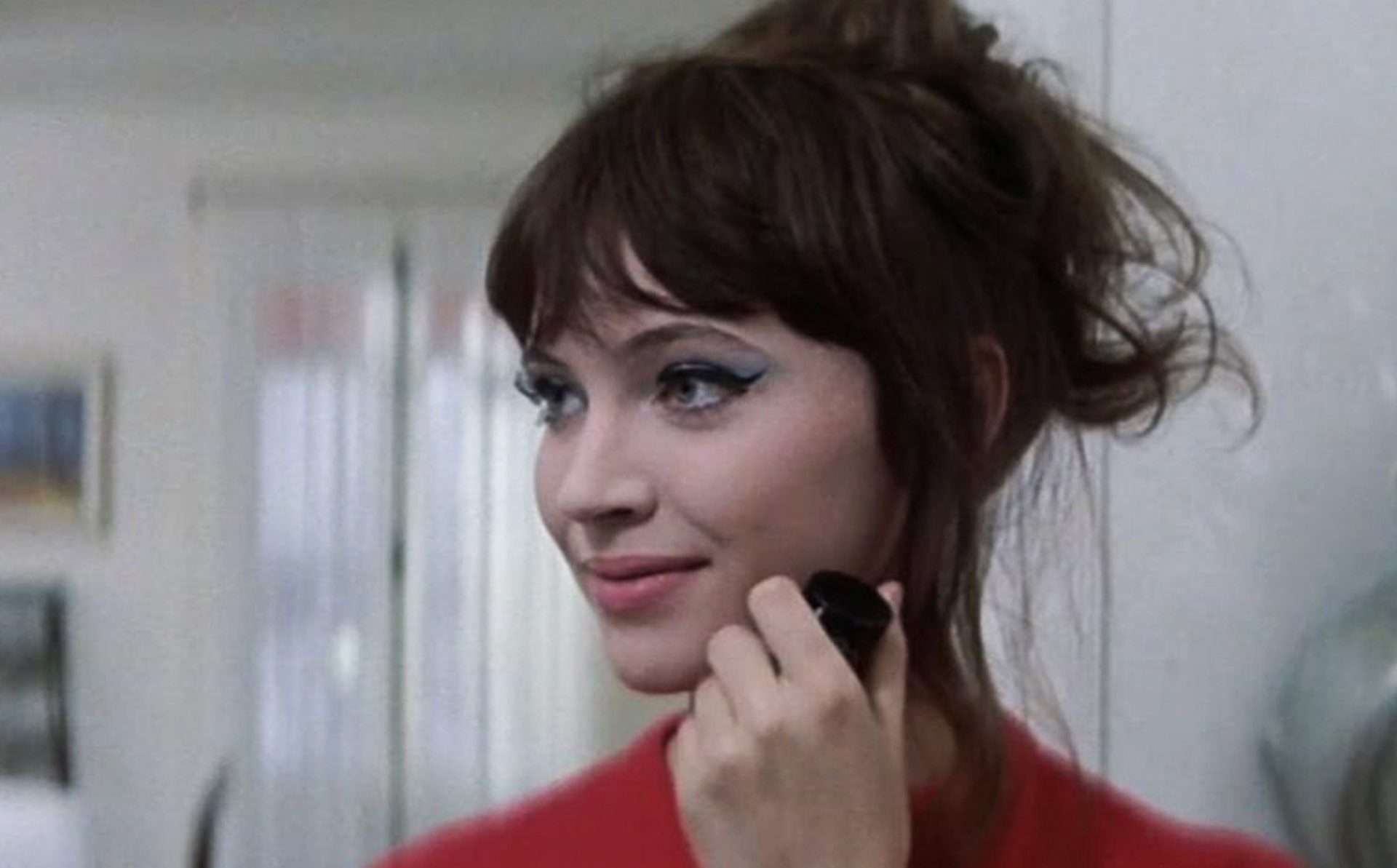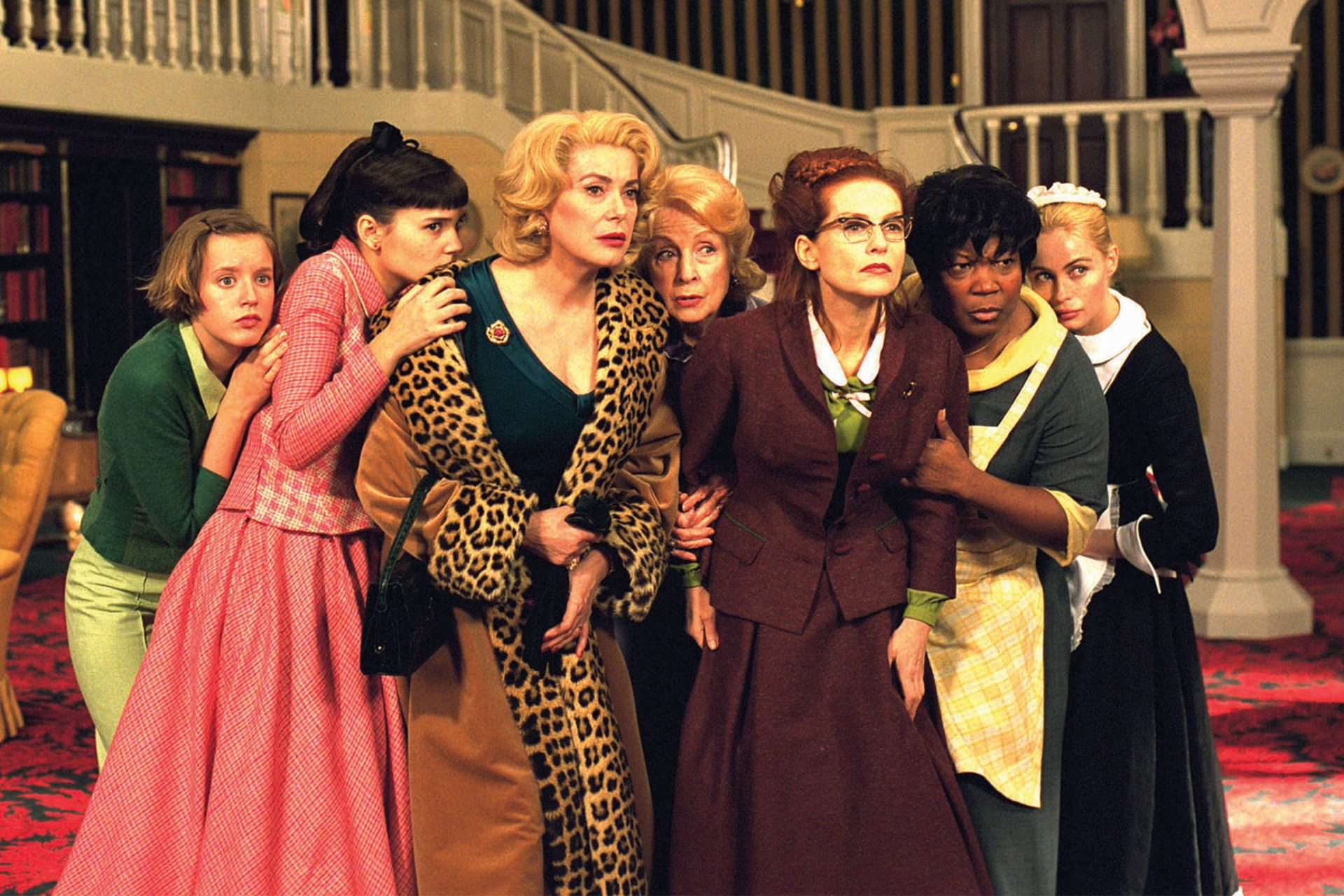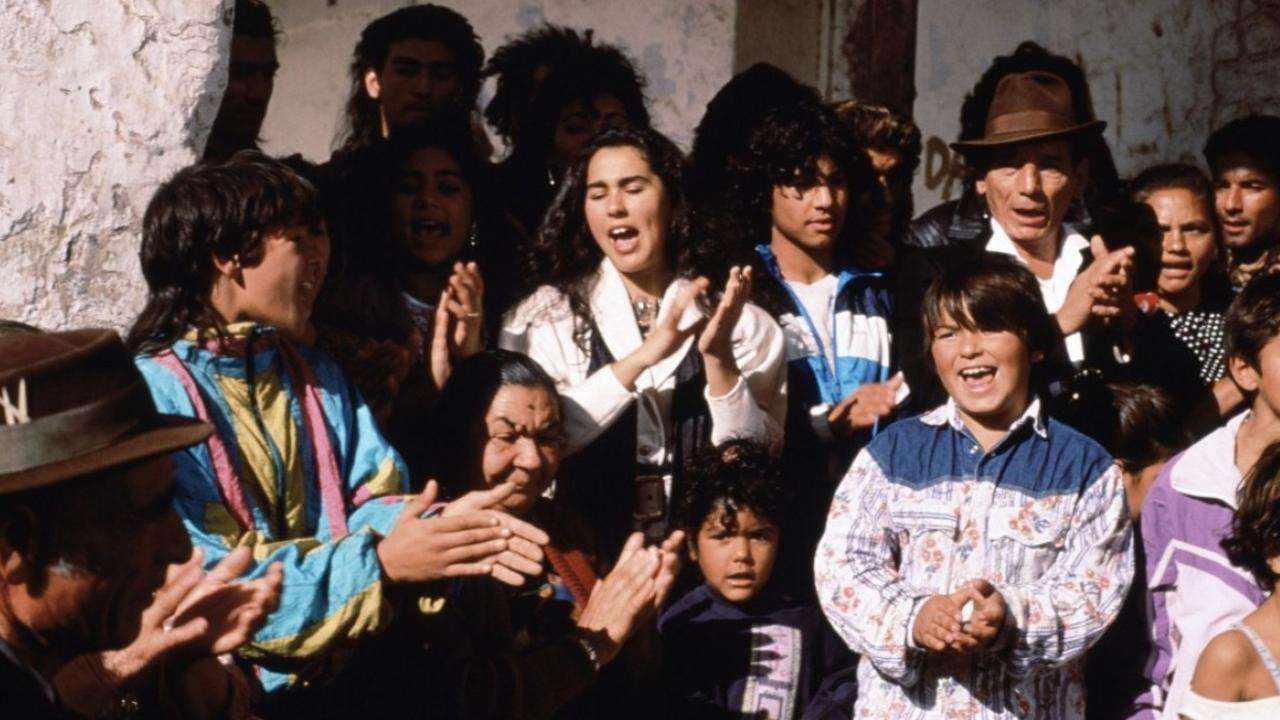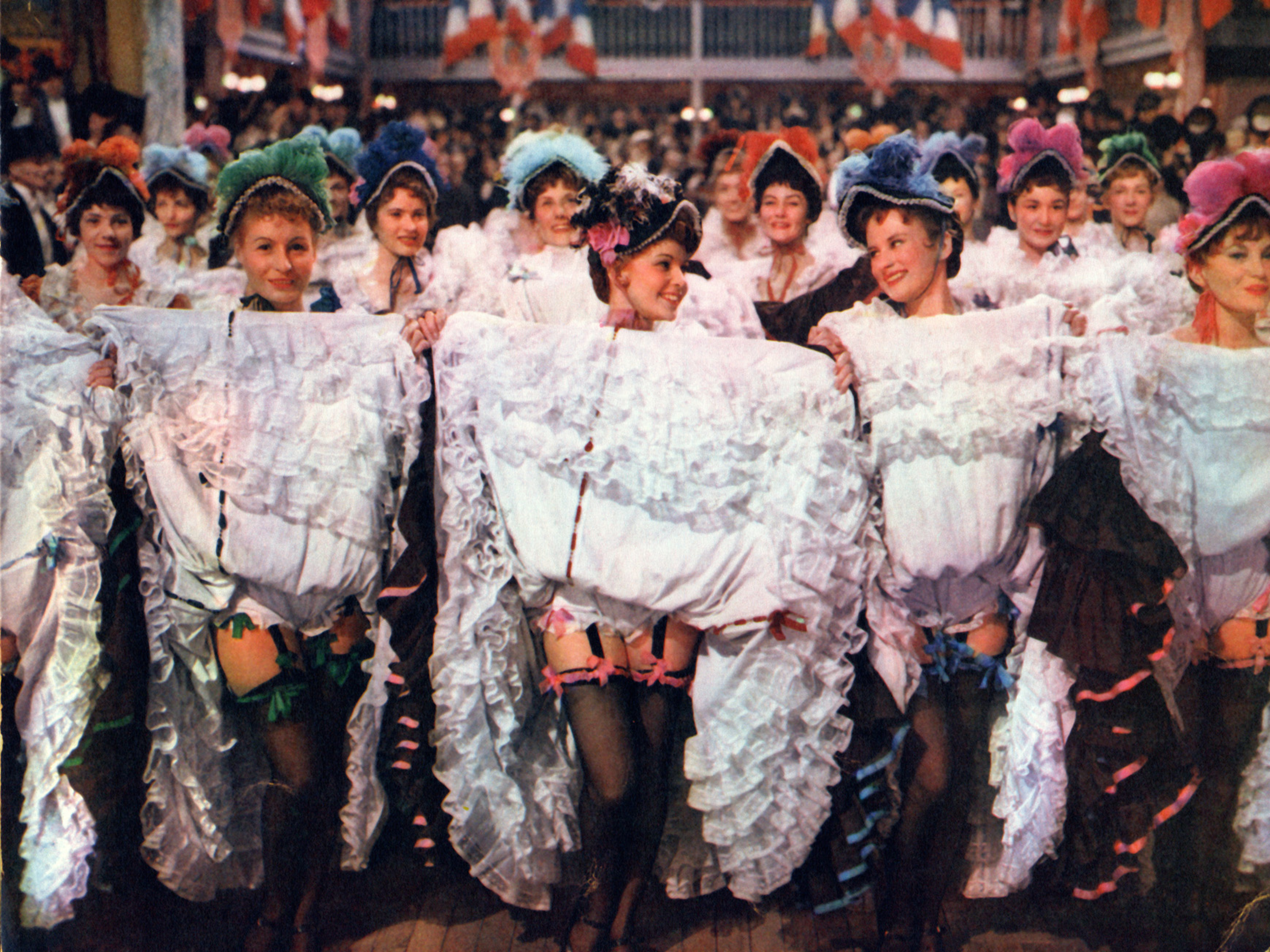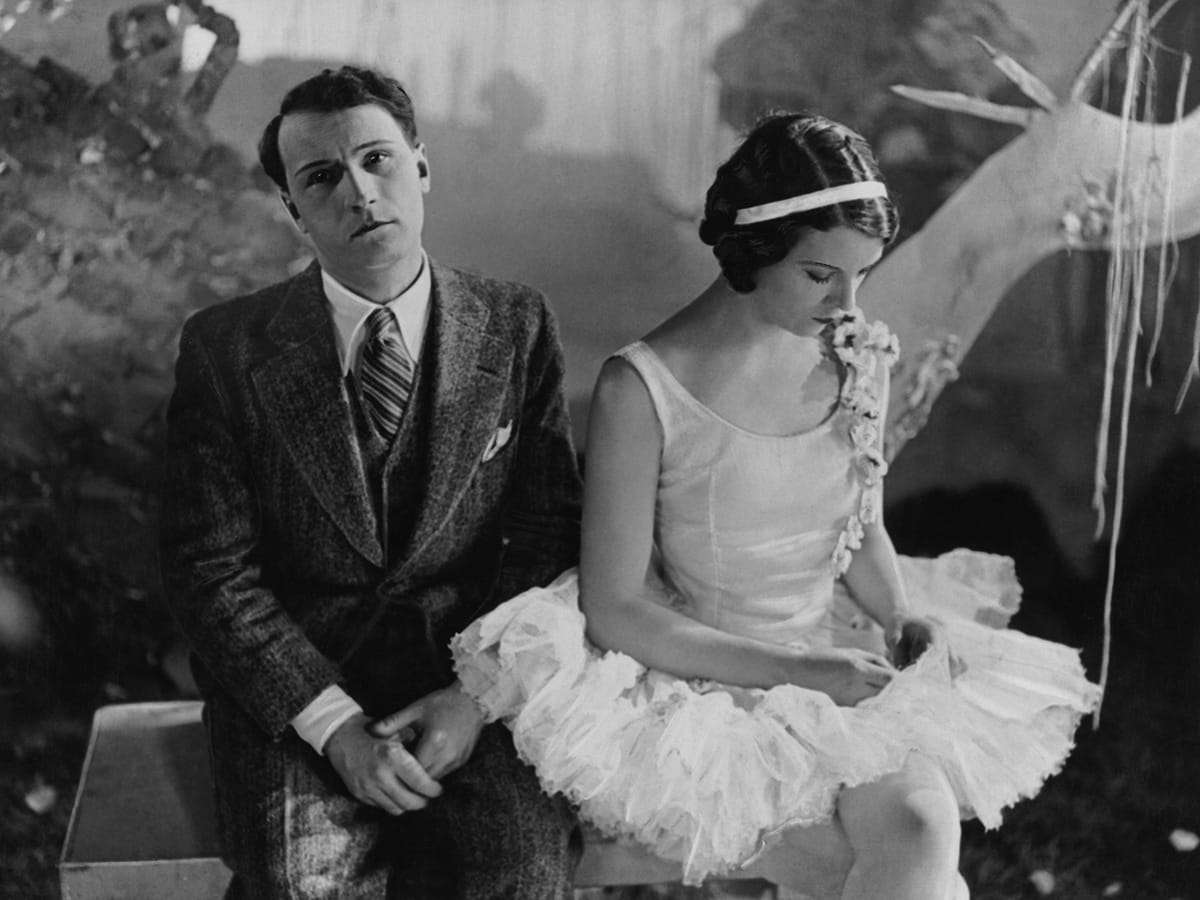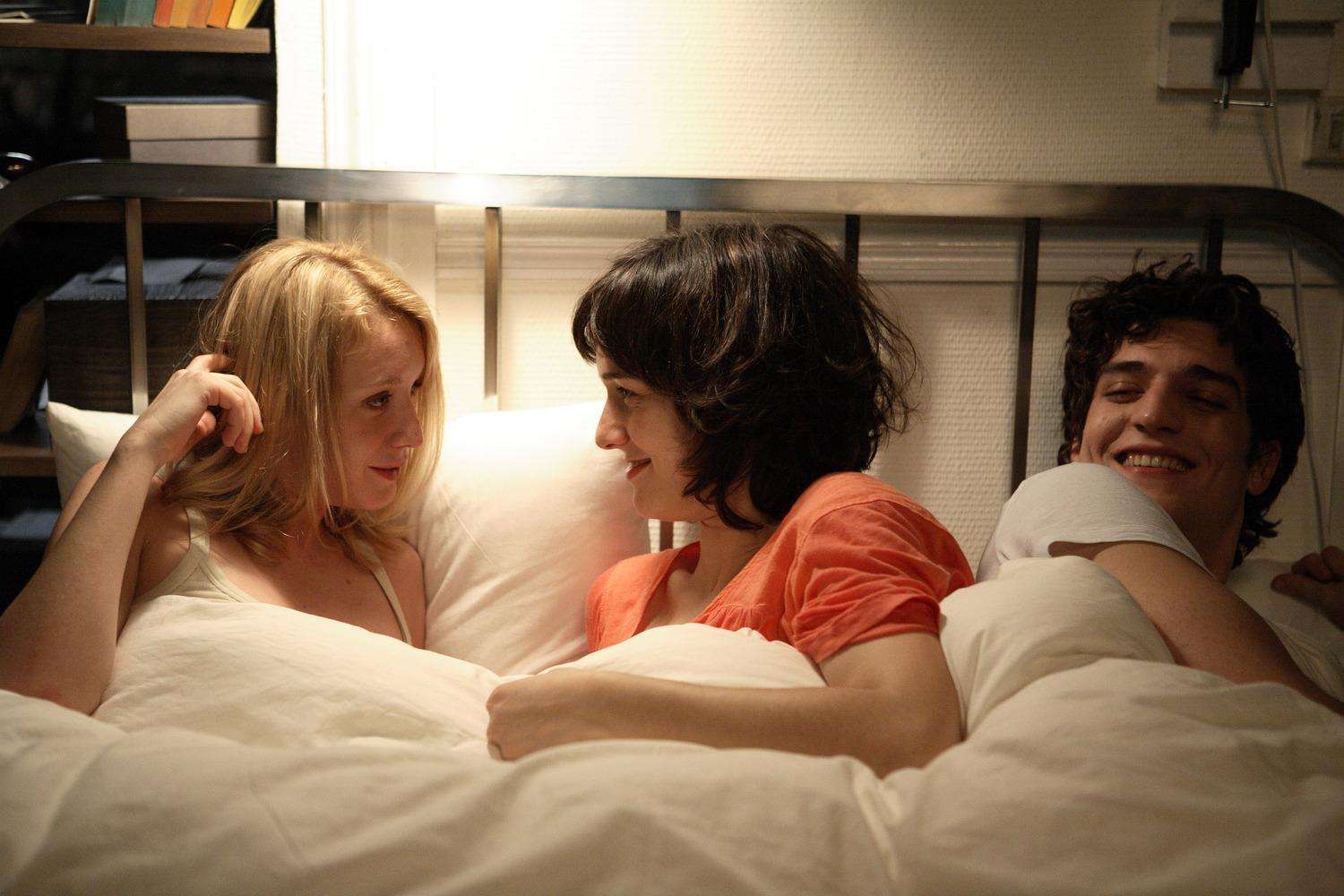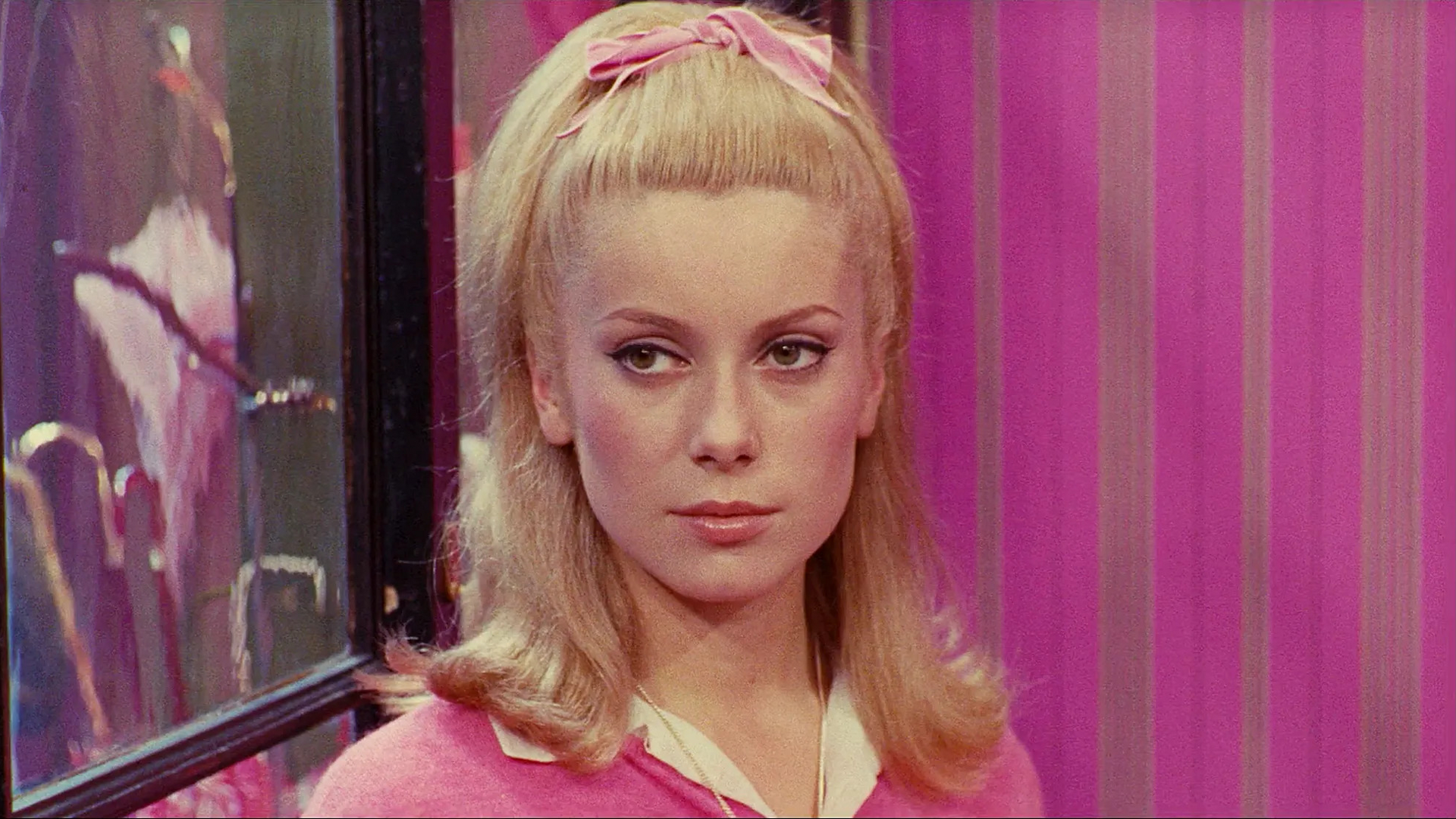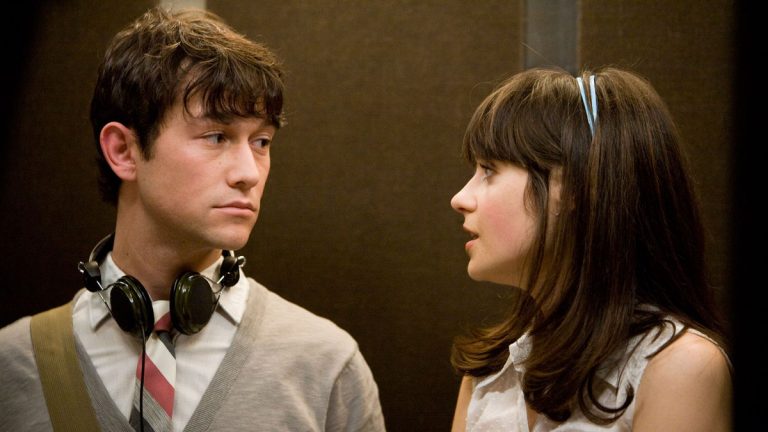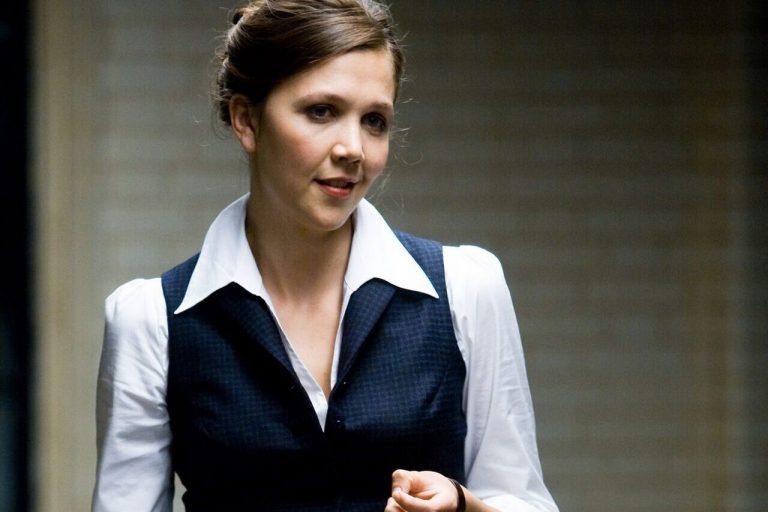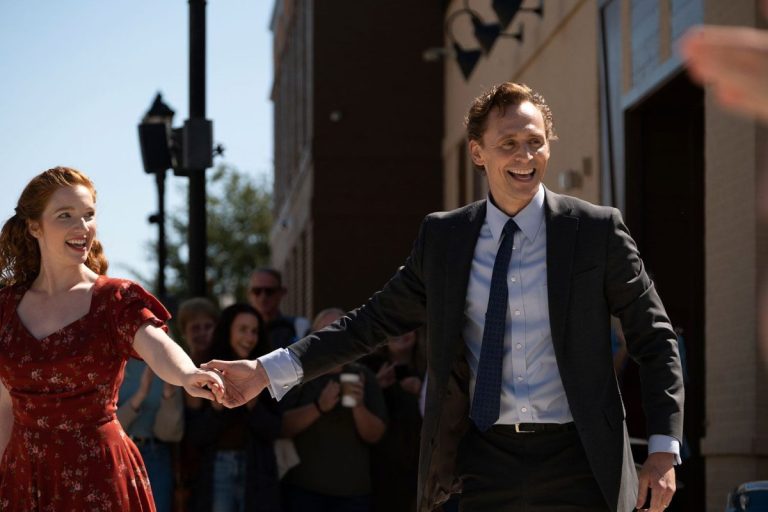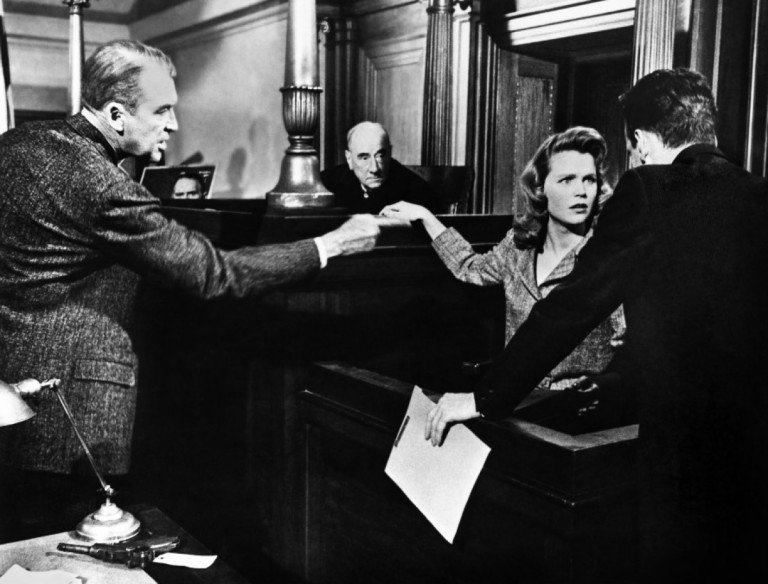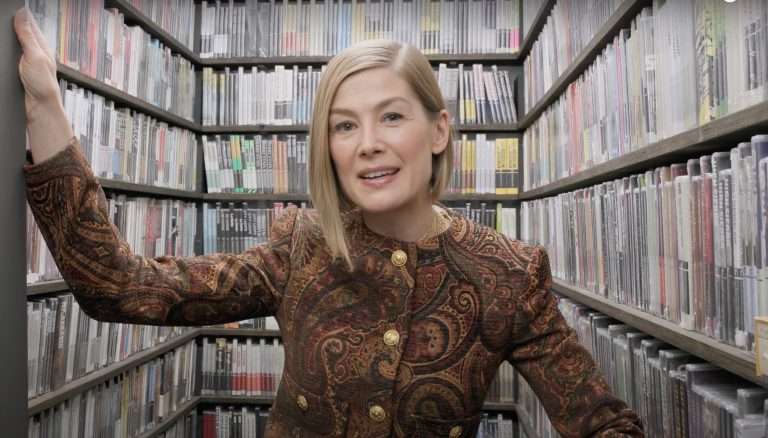French musical films are equally similar and different from Hollywood musicals. Some of them indulge in a more artificial use of the music than their US counterparts will ever do (like the all-singing musicals of Jacques Demy). Some love to deconstruct (Godard and Resnais are the usual suspects); some simply present the realities of the musical theater and art in general (René Clair, Jean Renoir), and others employ the power of music to fuel both a dramatic story and a story about culture. The following choices are some of the most representative French musical attempts throughout the years -in their mixture of tunes, dance steps, and bittersweet, happy, or sad stories.
10. The Suicide Shop (Le Magasin des suicides / Patrice Leconte, 2012)
What would have happened if the Chambery shop of Jacques Demy sold suicide tools instead of umbrellas? A menagerie of gloomy characters and suicide shop owners (in a town where hope is absent and public suicide is prohibited) has a rotten apple in its core: the always joyful kid Alan, who needs to change things for the best.
A gentle animated satire (with immaculate precision in its production design -coming from Jean Teulé’s 2006 best-seller graphic novel), it features all kinds of uplifting songs by Étienne Perruchon. It bends its animation style to suit the old hand-drawn toons. Leconte never frightens his audience; he only teases them. The too many episodes somehow distract from the main narrative arc, yet this is a small fee to pay for a completely different French animated musical.
9. A Woman Is A Woman (Une femme est une femme / Jean-Luc Godard, 1961)
JLG might not have been pleased, but his pastiche/hommage musical and its syncopated soundtrack look like an adult version of the anarchic story of genres in Louis Malle’s ‘Zazie in the Metro’ (1960). A radiant Anna Karina, as the stripteaseuse Angéla, needs to choose between her two lovers, played by Jean-Claude Brialy and Jean-Paul Belmondo. Full of meta-references to the then buzzing Nouvelle Vague movement, the destructive visual and aural text works better as a stern dilemma (a woman at the crossroads of her adult life) presented in a cartoonish Warner Bros / Tex Avery manner.
At least, this is how the Michel Legrand score is handled: soaring, bombastic, and mickey-mousing the actors’ utterances (and then suddenly silent). Godard invests (no surprise) in cinematic language to tell us about the film’s content, and the musical becomes an art form of effervescence that uncovers very contemporary personal dilemmas -especially in the young. ‘A Woman Is A Woman’ reflects tangentially all false niceties and established prejudices about women as being blatantly false, which only makes the players themselves musically amused.
8. The Lovers of Teruel (Les Amants de Teruel / Raymond Rouleau, 1962)
The 13th-century Spanish legend of star-crossed lovers Diego and Isabel (the Spanish version of Romeo and Juliet) gets its cinematic treatment in ‘The Lovers of Teruel,’ a musical ballet film by the Belgian film director Raymond Rouleau. The film both incarnates and updates the story with a modern version of French troupers playing the saga in front of an always irritated audience. Unduly mentioned (and not so readily available), the film features no songs (but Édith Piaf sang the title song as a promo marketing idea one year before her death).
The Greek ‘Zorba’ composer Mikis Theodorakis guides the soundtrack with his highly strung musical choices in a cast led by ‘The Red Shoes’ and ‘The Tales of Hoffman’ ballerina and actress Ludmilla Tchérina. Yet this is not a staged film; its fantasy sequence, with the dancers, veiled like Magritte’s ‘The Lovers,’ is magnificent in its suggestive power and abstraction (no wonder the film won the Technical Grand Prize at the 1962 Cannes Film Festival). It is as tragic as you should expect and as refreshingly visual and performative as ever.
7. 8 Women (8 femmes / François Ozon, 2002)
It takes a sweet iconoclast like François Ozon to provide a fitting tribute to Sirkian melodrama, the whodunnit mysteries, and the musicals in his delightfully frothy adaptation of the 1958 Robert Thomas eponymous theater play. ‘8 Women’ is a queer celebration, with a female army of first-rate stars and talents (Deneuve, Huppert, Ardant, Darrieux, Béart among the cast) finding more love between each other than the man they all relate to. On the other hand, Marie Laforêt, Dalida, and Françoise Hardy’s popular French songs (some of which postdate the 1950s time setting), covered by the famous cast, elevate the unreal performance factor to its maximum.
It’s a film that is meticulously scheduled not to take itself seriously -and the actresses, especially Huppert as the bespectacled aunt Augustin and Ardant as the male and female seducer, have a field day (the whole cast won the Silver Bear for Outstanding Artistic Contribution at the 2002 Berlinale). The music here is the antidote to loneliness, male oppression, and death. And it won’t matter if the songs subsume the narrative -the film simply comes out of the closet.
6. Latcho Drom (Safe Journey / Tony Gatlif, 1993)
From the mystical to the sorrowful to the triumphant, Tony Gatlif’s non-stop musical documentary is a testament to what can only be sung about the Roma culture but never told or argued. From the Thar Desert in India’s Rajasthan to Spain, the trajectory includes Egypt, Turkey, Romania, Hungary, Slovakia, and France. There is affinity without spoken words, there is dance and a celebration of a culture (from the very young members to the old) that has been constantly on the road and tormented. 20th-century grave events (like Auschwitz and the Romani Holocaust) are part of the singing journey. Ordinary life events also feature, such as a young non-Romani Hungarian boy dancing to the tunes of Romani people.
Winner of the Cannes’ Un Certain Regard section, the soundtrack bursts with music by names such as Talab Khan Barna, Les Musiciens Du Nil, Taraf De Haïdouks, Dorado, and the empowering finale sung by La Caita. But ‘Latcho Drom’ is more than a musical soundtrack; it is the vitality and the memory of a culture against all odds and a film to be cherished.
5. French Cancan (Jean Renoir, 1955)
‘French Cancan’ is a colorful extravaganza where dance takes precedence over songs, yet Jean Renoir’s confetti film (and a big success at the time) shares the same concerns that his earlier films present. Everyone has their reasons in this visually sumptuous and impressionistic film. The young laundry girl Nini (Françoise Arnoul) divides her love affections into three lovers: her theater mentor Danglar (Jean Gabin), the hot-headed Paulo (Franco Pastorino), and the dignified aristocrat Alexandre (Giani Esposito).
Renoir uses a more conventional directorial approach than in ‘The Rules of the Game,’ yet the exquisite arrangements of bodies in dancing motion enter and exit the screen in an almost magical quality -as if group psychology (and the theater motto ‘the show must go on’) must take precedence over individual petty affairs. As to the life of the theater itself, Renoir does not shy away from showing its allure and fragility. Watching the film feels like walking over a very tight moral rope, but it makes for better dancing of life at the end.
4. Not on the Lips (Pas sur la bouche / Alain Resnais, 2003)
Alain Resnais plays once more with the musical genre (he did it before in the lip-synching of the 1997 ‘Same Old Song’), and the director of ‘Last Year in Marienbad’ finds himself adapting a 1925 operetta (by André Barde and Maurice Yvain). Using his regulars (Sabine Azéma, Pierre Arditi, Lambert Wilson) plus newcomers like the ‘Amélie’ star Audrey Tautou and the remarkable ‘man on drag’ Darry Cowl (César for best-supporting actor), he makes a frothy boulevard comedy suddenly come alive with brio and frivolity. The plot is as farcical as can be: the wife of a Parisian businessman needs to hide from her husband (who believes in the scientific tie of the first conjugal act) that she was previously married – with her first American husband now in town.
Resnais populates this with characters who break the fourth wall, can suddenly disappear, or cohabit in the same opulent space of misunderstandings. His modernist take on the traditional theatrical form is more caring than revolutionizing. Resnais loves theater and song-and-dance numbers, and the musical undertaking is still a refreshing (and nostalgic) take on the days in which sexual mores allowed for moral escapades -if you belonged to the upper class, that is. Not as witty as Lubitsch but sparkling.
3. Le Million (René Clair, 1931)
It is not the first time the French director (who bridged both the silent and the sound eras) devoted himself to a ‘musical comedy.’ He also did it in the rags-to-riches comedy ‘À nous la liberté’ (1931) and the darker ‘Under the Roofs of Paris’ (Sous les toits de Paris, 1930). But ‘Le Million’ involves a whole Greek chorus and dance parade of the petit bourgeois. They all need to get some glimpse of happiness by chasing a winning lottery ticket inside a jacket (which moves from person to person throughout the 91-minute film).
‘Le Million’ is a hilarious adaptation of the eponymous 1911 play (by Georges Berr and Marcel Guillemaud) with its merry-go-round, using the power of the music to express both the accusations against the artistic individual and the praise for them. Music in René Clair’s film is another ploy to bridge the highbrow and the popular, in the same way that its characters need to find peace and moral certitude after their endless chases in corridors, on stage and backstage, and staircases -and subsequent moral lapses. It’s a timeless film.
2. Love Songs (Les Chansons d’ amour / Christophe Honoré, 2007)
Christophe Honoré’s take on ‘The Umbrellas of Cherbourg’ adds the explicit LGBT and polyamorous theme that Jacques Demy’s film couldn’t present then. Modeled as a three-chapter film, it follows a group of young Parisians (Louis Garrel, Ludivine Sagnier, Clotilde Esmer, Chiara Mastroianni, Grégoire Leprince-Ringuet) in their erotic escapades and the eternal question of unmitigated love vs. eternal loneliness and search for ‘the right one.’ But the mood here is melancholic, the songs by Alex Beaupain (César Award for best music) reflective, and the narrative gets a first-act surprise, to which all characters will subsequently respond.
It is not your happy-go-lucky poly affair here, but more the literate and confused representation of love by a generation who cannot find meaning in concepts alone. Honoré builds up an equally gloomy and magical world of Paris, with the characters immersed in their fluidity. All-time questions are raised in a renewed, welcome musical approach. (Honoré did it again in 2011 with the sweeping history and places tale of ‘Beloved’).
1. (Tie) The Young Girls of Rochefort (Jacques Demy, 1967) and The Umbrellas of Cherbourg (Jacques Demy, 1964)
The Young Girls of Rochefort (Les Demoiselles de Rochefort, 1967)
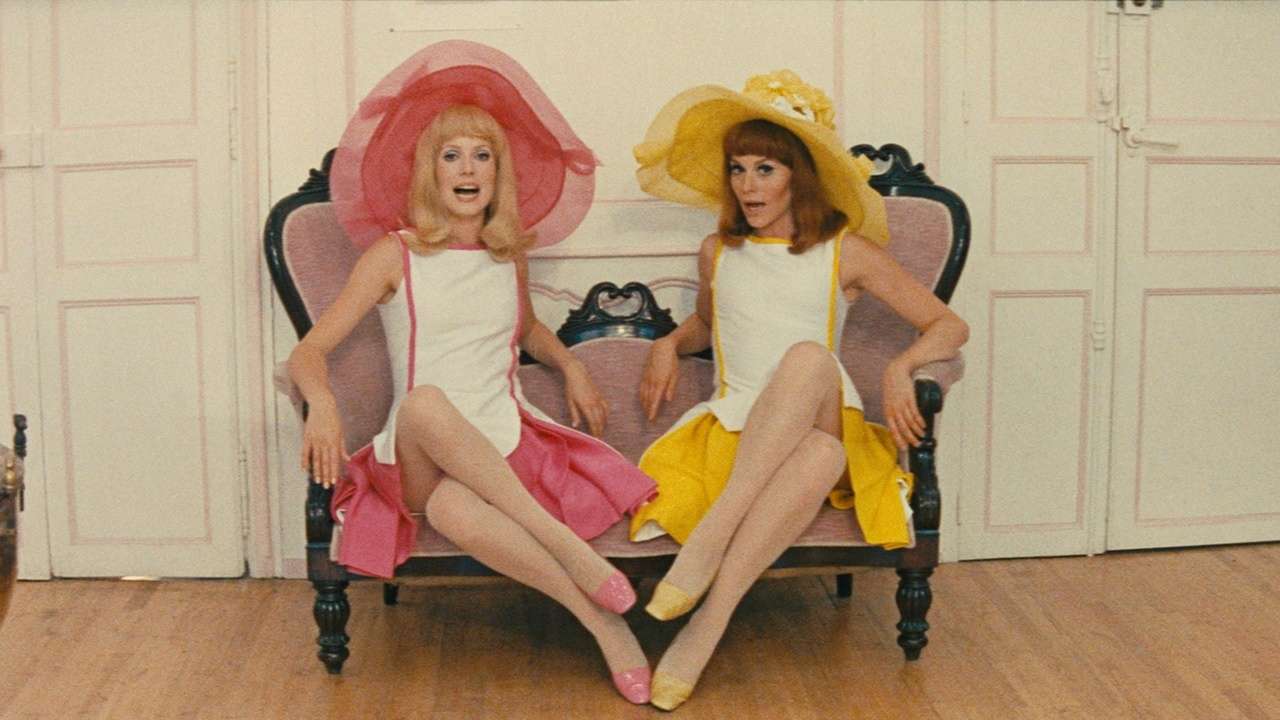
Real sisters Catherine Deneuve and Françoise Dorléac might be the best thing here. Still, the impressive cast of French/American actors and dancers (Danielle Darrieux, Michel Piccoli, George Chakiris, Grover Dale, Jacques Perrin, and Gene Kelly) plays according to love lost and found. Like a Shakespearean comedy of manners, Demy’s highly successful musical (his second success after ‘The Umbrellas of Cherbourg’) gets everyone tamed under the jazzy, breezy, frothy score of Michel Legrand. ‘The Young Girls of Rochefort’ is a love safety valve between the unattainable ideals and the very dark love troubles in the world, both presented in the film.
An homage to ‘Gentlemen Prefer Blondes,’ ‘West Side Story’ and so many Gene Kelly/Stanley Donen films, ‘The Young Girls of Rochefort’ is still an artifact set in a completely realistic (and too provincial) setting. Everything takes place within a glorious weekend, and the young girls of Rochefort (along with the young boys) will leave the place, whose charms can be called anything but artistic -no ‘La La Land‘ glamor here. Its choreography and camera movements set the characters free and give them the impetus to navigate rough terrain and find genuine, youthful love.
The Umbrellas of Cherbourg (Les Parapluies de Cherbourg, 1964)
Catherine Deneuve and Nino Castelnuovo only had to lip-synch Michel Legrand’s justly celebrated tunes in the sung-through musical, but their magnetism remains the same. So does the daring, calculated monochrome palette that Demy chooses for his melancholic romance of two young lovers faced with the realities of life in 1950s France. Making his camera glide into cinematic space, he has his actors and actresses giving a heartfelt performance and crafts the quintessential singing heartbreaker. Demy made the small-town Cherbourg a household name, winning the Palme d’Or and getting 5 Academy Award nominations. His film is keenly aware of the changing times after the Algerian war, increasing consumerism, and the disappearance of small businesses.
While at the same time, some moral prerogatives (taking care of your guardians, the shame of pregnancy outside marriage) remain strong. Yet, even briefly, love is a means to transcend or modify those constraints. Demy’s trademark sailors, a symbol of freewheeling love and making space for some queer undertones, populate the film (after ‘Lola’ and before ‘The Young Girls of Rochefort’). But the authenticity of the two main characters shines in the autumnal and wintry weather, making the ‘Umbrellas’ a still youthful work in all its singing artificiality.

